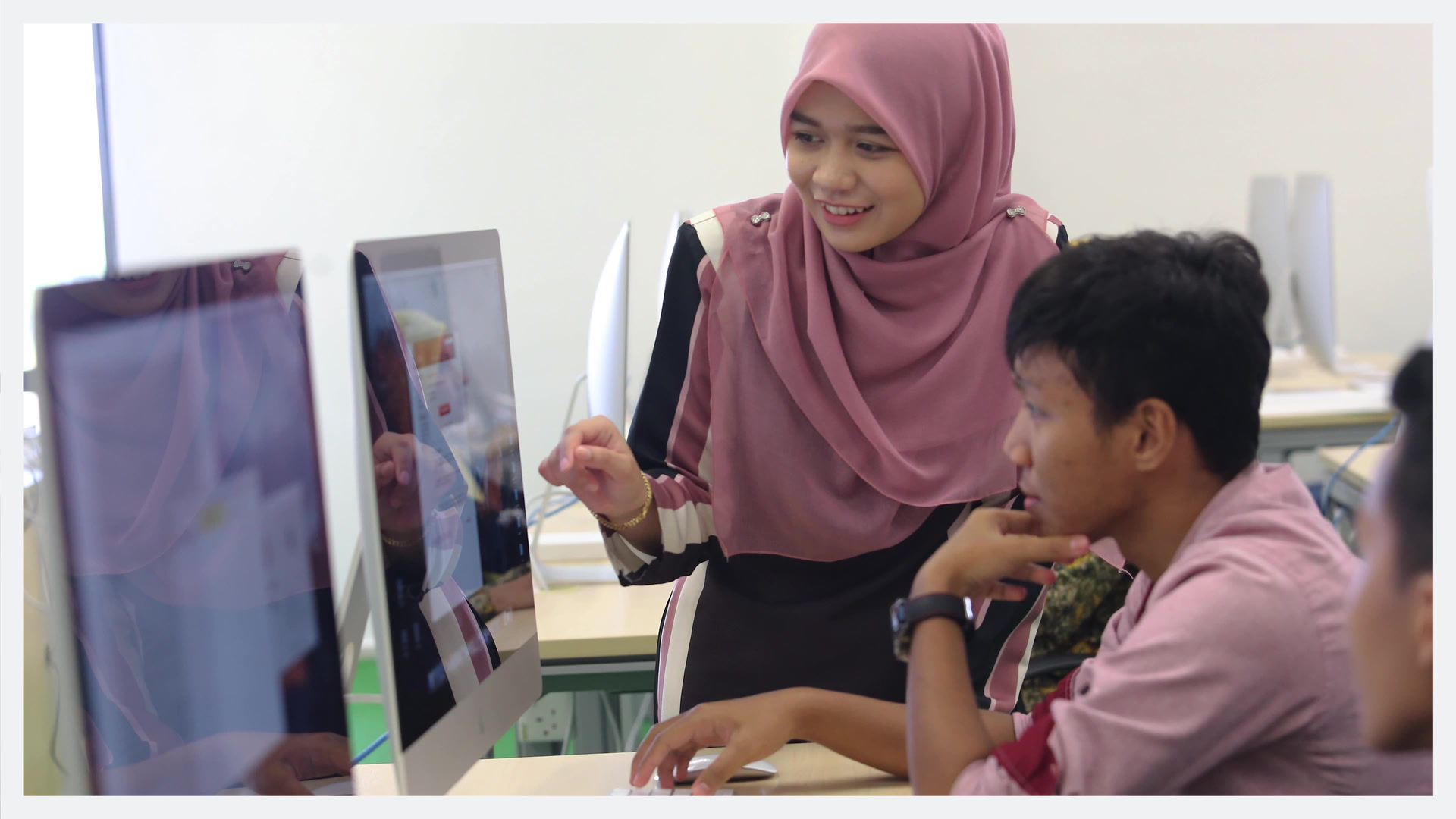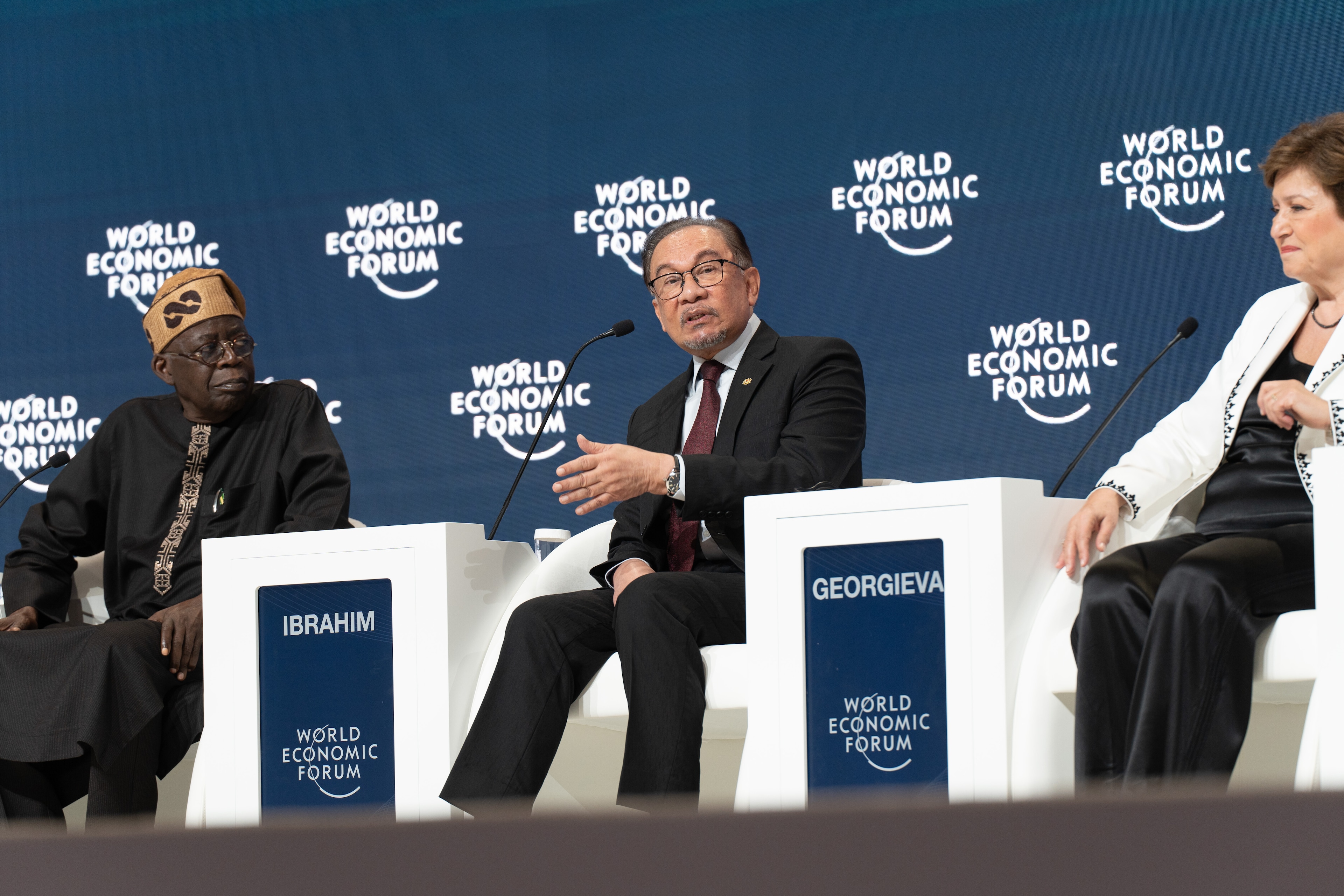How storytelling is teaching children around the world financial literacy

Global Shapers from 50 hubs around the world are closing the financial literacy gap through illustrated children's books Image: Lisbon Hub

Get involved with our crowdsourced digital platform to deliver impact at scale
Stay up to date:
Portugal
- Only 34% of adults are financially literate as per an OECD study.
- Mary and the Secret of Savings is a cross-hub collaboration of a children’s storybook, it has been adapted by 50+ hubs to help improve financial literacy worldwide.
- We hope that communities across the globe engage in local projects to create a financially empowered world for everyone.
Only 34% of adults are financially literate as per an OECD study from 2023. In today’s volatile macroeconomic environment, children are often disproportionately vulnerable to the consequences of rising economic instability. Now more than ever, financial literacy and awareness is essential, especially among children. That is why Global Shapers Hubs across the world are working to educate children on the first step of financial security: savings.
Marie, Mary, مريم (Myriam) and मीरा (Meera)... there are many variations of the protagonist of Mary and the Secret of Savings, but what makes a cross-hub collaboration of a children’s storybook, adapted by 50+ hubs in 20 languages, unique? Originally conceptualized by the Lisbon Hub, this project reached the global stage through collaboration between Global Shapers Hubs in countries such as Sweden and India.
What is the World Economic Forum doing to improve digital intelligence in children?
How it started in Portugal
In an inspired endeavour that kicked off in September 2022, five shapers from the Lisbon Hub decided to create this book. It was designed to be a response to the unprecedented impact the COVID-19 crisis had on economic activity, exacerbating existing gaps between individuals, businesses and states. Since then, the book has been making waves across Portugal.
The Lisbon Hub, supported by its partners, the Santander Bank Foundation Portugal and Group Leya, has achieved significant milestones with this initiative. It has distributed over 3,200 physical books and several hundred e-books and it has captivated the hearts and minds of more than 300 children through engaging sessions and events.
In Portugal, the project was strategically designed to address critical gaps identified in the country's financial literacy landscape. With approximately 60% of Portuguese adults lacking the minimum financial knowledge required for informed decision-making and only 63.5% reporting saving habits, the hub’s mission aimed to bridge these gaps. There is excitement rising for the project’s second edition, which promises an additional 5,000 book copies to be disseminated nationwide, reaching diverse schools across the country.
Building on this success and based on the findings from the OECD/INFE 2020 survey, which reveals alarmingly low financial literacy levels across various countries worldwide, Mary and the Secret of Savings is expanding internationally. This is thanks to collaboration between over 150 global shapers promoting financial literacy in their local communities worldwide. It underscores the universal need for financial education.
Tackling socio-economic disparities in Malmö
Malmö, Sweden's third largest city, is also one of the most culturally diverse in the European Union. With 179 nationalities represented and almost half of its inhabitants under 35 years old, it is one of the youngest cities in Sweden. But, unfortunately, due to large socio-economic disparities, Malmö has the highest number of children living in poverty in Sweden, approximately 32% and up to 50% in the most disadvantaged neighbourhoods.
Systemic inequality makes it even harder for these children to have equal opportunities. Since its inception in 2018, Global Shapers Malmö has worked to give youth and children the tools and support to chart a better future ahead. The children’s book started by Lisbon Hub was, therefore, a perfect match, as we believe increasing financial literacy and financial security in households is one of the crucial factors contributing to uplifting children in Malmö.
Malmö Hub’s vision is to make the book accessible to all children aged 8-12 in the city and to trigger discussions in schools and households regarding savings, banking systems and community support. The first crucial step in adapting the book was to increase the characters’ diversity to accurately represent the multicultural makeup of the city's families.
In early 2024, we launched the book, inviting children and their parents to befriend Marie through reading the book and savings-related games. Using the feedback, we are currently working to build an integrated offering for teachers with a facilitation guide and a gamified learning experience to solidify the learnings from the book.

Leveraging the storybook as an enabler in India
In India this intervention was executed in a slightly different way. The Gurugram Hub began by understanding how this book would be perceived by children in the age group of 9-12. We realized that the book needed to be adapted to the Indian context to maximize the possibility of children relating to the story and its lessons. For this, we leveraged an experience-based learning approach. This meant making soft-touch changes, such as altering characters’ names and illustrations to truly resemble that of an Indian family, and also some hard-touch changes, like ensuring the book is translated into Hindi and accessible to all children.

The Gurugram Hub didn’t stop there – we pressure-tested the effectiveness of the storybook in improving financial literacy by conducting a pilot in Diksha School. The pilot consisted of three sessions, spread across three weeks targeting ~30 students prevailing from underserved communities in and around nearby areas of the school. We also created baseline and end-line assessment forms to track the metric movement in financial literacy awareness levels amongst the students and to understand just how good a job the storybook did in catalyzing this awareness.
Through the pilot, these students got an opportunity to read and engage with the storybook, learn from interactive games and critically analyze why saving money is important. Our endline assessment form revealed that over 85% of students considered saving money as ‘very important’ and education being the maximum repeated response to what they want to save money for. At the end of our final session, the students presented a skit with their own spin on the storybook, cementing the book’s ability to spark inquiry and spread financial literacy awareness.
Your role in improving financial literacy
The Global Shapers Community Hub's Financial Literacy Education project continues to make an impact. More initiatives are required, however, to reduce inequalities and increase financial literacy, particularly among vulnerable communities. Mary and the Secret of Savings is a testimony to the power of community and how, when people come together for a common purpose, challenges, like distance, different languages and cultures, cease to exist.
This project could not be possible without stakeholders, such as business leaders, teachers, municipalities and governments, parents and even other NGOs, who played a crucial role in financing, securing distribution channels and integrating these types of projects, and this book, in particular, into educational programmes.
We hope that hubs and communities worldwide take a leaf out of this book and take legitimate steps to recognize the importance of financial literacy and engage in local projects, so that we can strive for a future generation equipped to thrive in life. Together, let us create a financially empowered world for everyone.
Don't miss any update on this topic
Create a free account and access your personalized content collection with our latest publications and analyses.
License and Republishing
World Economic Forum articles may be republished in accordance with the Creative Commons Attribution-NonCommercial-NoDerivatives 4.0 International Public License, and in accordance with our Terms of Use.
The views expressed in this article are those of the author alone and not the World Economic Forum.
The Agenda Weekly
A weekly update of the most important issues driving the global agenda
You can unsubscribe at any time using the link in our emails. For more details, review our privacy policy.
More on Education and SkillsSee all
Ana Paula Assis
May 10, 2024
Andrea Willige
May 10, 2024
Phil Baty
May 8, 2024
Gayle Markovitz and Kate Whiting
May 2, 2024






